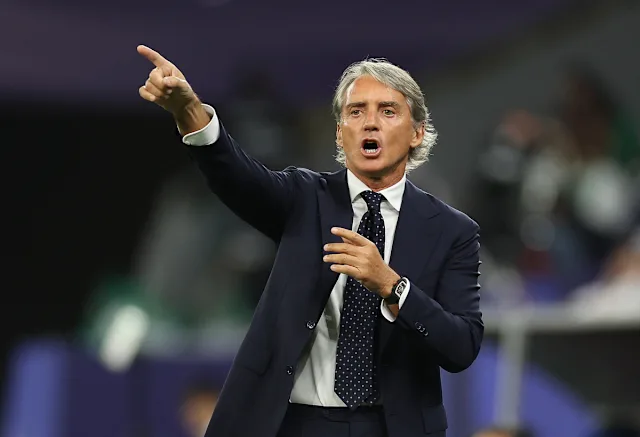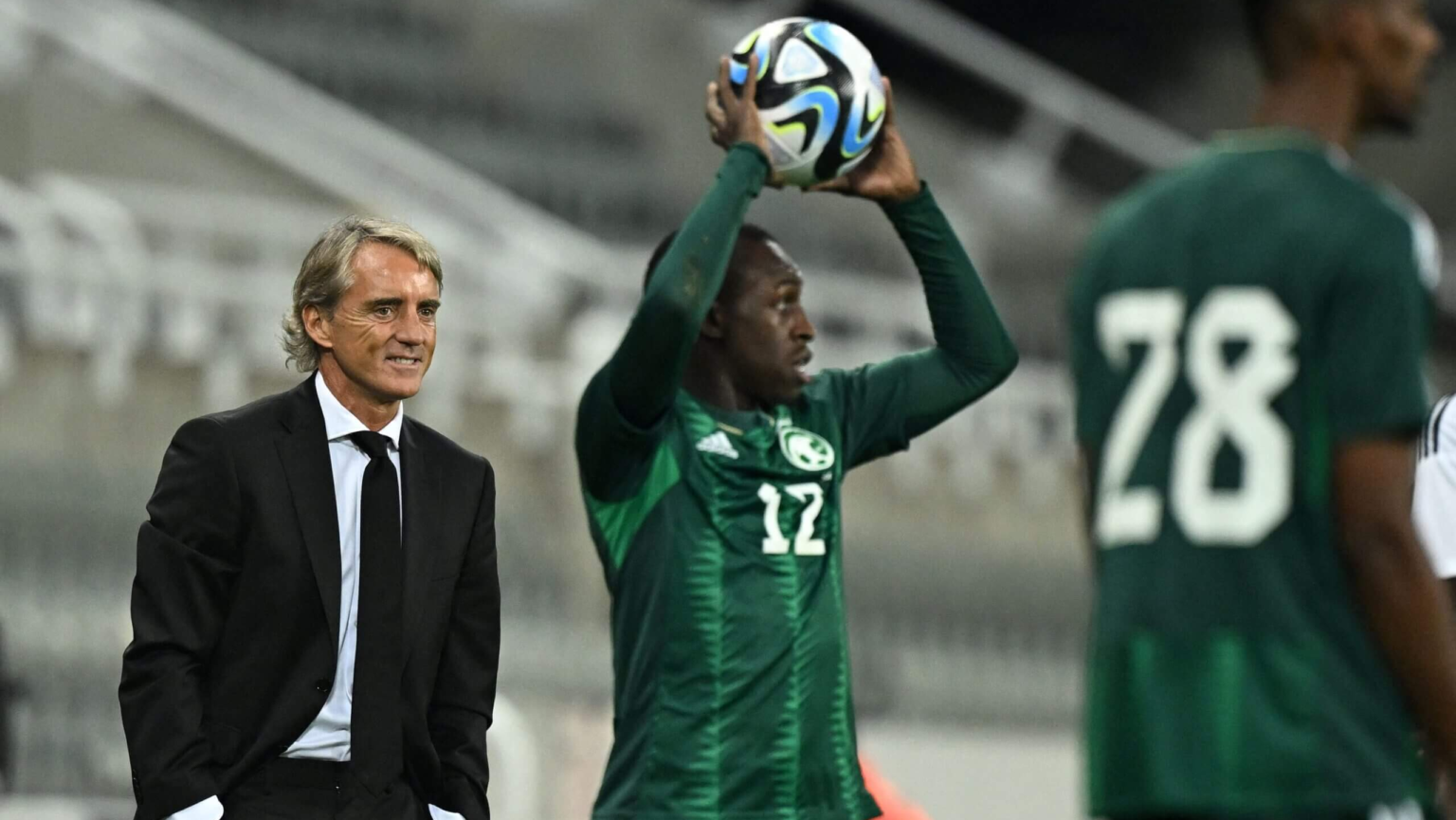Under the bright lights of a new stadium and amid the hum of expectation, Roberto Mancini arrives in Qatar not just as a coach with a résumé but as a human being stepping into another chapter of his life. This move to Al Sadd, confirmed and now the subject of conversations across dressing rooms, cafés and living rooms, is more than a professional transfer. It is a story about reinvention, responsibility, and the quiet ways a leader can shape people, teams and a community.
A coach with a story, not just a CV
Roberto Mancini’s career has many headline moments: trophies lifted, dramatic comebacks and tactical triumphs. But beyond match statistics and media summaries lies a person shaped by long hours on training pitches, late-night tactical sketches and countless conversations with players who needed more than instructions, they needed belief. That human side is what often matters most when a coach moves countries and cultures. For Mancini, the job at Al Sadd isn’t just about winning matches; it’s about building relationships, understanding the local rhythm and helping players find confidence.
What this means for Al Sadd and Qatari football
Al Sadd is a club with ambition and tradition, and bringing in a coach of Mancini’s stature signals intent. But the impact will likely extend beyond the club. A respected coach arriving in the Qatari league brings fresh attention, fresh methods, and new expectations for youth academies, for rival clubs and for fans who want to see their team perform with identity and heart. Mancini’s presence can inspire young players watching training sessions, and it can accelerate conversations about coaching standards, player development and the role of football in local culture.

Balancing expectation with humanity
High-profile appointments carry immediate pressure: results, trophies, and a style of play to justify the headline. Yet the most successful leaders in sport balance that pressure with empathy. Mancini, known for his exacting standards, will also need to listen to players, staff, and the club’s wider environment. That balance is a human skill: motivating hard work while showing respect for individual journeys. In a new country, cultural sensitivity becomes an extension of coaching acumen. It’s the small gestures, learning names, listening to local staff, understanding family rhythms, that often unlock trust.
The players, a mix of talent and potential
Al Sadd’s squad arrives as a mix of seasoned professionals and promising youngsters. For those veterans, Mancini brings tactical clarity and experience that can sharpen their edge. For the younger players, the opportunity is invaluable, to learn day-to-day from someone who has coached at the highest levels. A coach’s greatest legacy is sometimes less the silverware and more the careers he helps steer. Mancini’s role will be to build confidence in individuals so they can flourish in the system, and in turn, the system will become stronger because those players feel seen and supported.
Tactical visions and practical steps
On paper, discussions about formations and pressing patterns are easy to sketch. In practice, integrating a coach’s philosophy requires methodical work: new routines, tailored training sessions and a shared language on the pitch. Mancini’s teams have historically shown a disciplined structure and attacking intent; translating that to Al Sadd’s context means blending local strengths with proven tactics. Expect an emphasis on ball movement, intelligent positioning, and an insistence on professionalism from punctuality to recovery habits. But the tactical plan will be delivered with human patience, a gradual rollout respectful of the players’ learning curve.
Fans and community: more than spectators
A coach’s arrival always re-energizes a club’s fan base. For Al Sadd supporters, Mancini’s confirmation is likely to spark renewed hope, lively debate and a refreshed sense of identity. Fans are not passive; they become an active part of a club’s story, welcoming new philosophies and holding leaders accountable. Mancini’s success will depend in part on how well he connects with this community, not just through results but through moments that show care: open training events, interactions with supporters and a visible commitment to the club’s long-term wellbeing.
Challenges to expect and the human responses they demand
Any transition carries obstacles: language barriers, differing expectations, and the pragmatic realities of travel schedules and league demands. The most constructive approach is one Mancini has used before, acknowledge the challenges, tackle them openly and bring people along. That might mean leaning on translators, investing time with local coaches, or adjusting training plans to account for climatic conditions. Leaders who treat problems as joint challenges rather than personal failures create teams that respond with resilience and creativity.

The wider influence: coaching culture and legacy
Beyond immediate results, a high-profile appointment can influence a nation’s coaching culture. Mancini’s methods, training drills, and professional standards are likely to ripple through Al Sadd’s youth programs and into local coaching courses. Legacy here isn’t simply trophies on a shelf; it’s the coaches who adopt new practices, the kids who internalize a professional routine, and the subtle elevation of standards across the league. A single season can plant seeds that grow into a healthier football ecosystem.
Personal growth and what it means for Mancini
This move is also a personal journey. For every coach, adapting to a new environment is a chance to re-evaluate priorities and rediscover core motivations. Mancini’s next months will test his curiosity and patience, his willingness to listen to new voices and to let his style evolve. Those who thrive on such assignments are those who balance confidence with humility, conscience with ambition. It’s a rare and valuable blend, and one that often leads to meaningful growth both on and off the pitch.
Measuring success beyond the scoreboard
Success will inevitably be judged in league positions and cup runs, but the most humane appraisal includes softer metrics: player development, the club’s culture, and fan engagement. Did the younger players improve? Did the team display a clear identity? Did morale lift and did the club feel more cohesive? These human-centered outcomes are harder to quantify but often more enduring. A season that nurtures talent and strengthens bonds might not yield trophies immediately, but it can set the stage for sustainable success.
Looking ahead with optimism and realism
Hope is natural when a figure like Mancini arrives: new ideas, new vigor and new stories to tell. At the same time, realism keeps expectations grounded. Building takes time. The path will have bumps, but it will also have teaching moments: a stubborn training drill that finally clicks, a young player who takes a risk and succeeds, or a match where teamwork outshines individual brilliance. Those moments are the texture of a season, what makes sport human and compelling.
A final thought: leadership as a shared journey
At its best, football is a collaborative art where leadership isn’t a solo act but a shared journey. Mancini’s role at Al Sadd will flourish if he treats it that way, as a conversation with players, staff, fans and the wider football community in Qatar. His arrival is an invitation to raise standards, to learn together, and to build something that lasts beyond a single match or trophy. The confirmation is complete, now the real work begins, and like all meaningful work, it will be measured in growth, small victories, and the lives improved along the way.
Do follow Gulf Magazine on Instagram.
Also Read – Saudi Corporate Training Market Poised for Robust Transformative Growth by 2033



